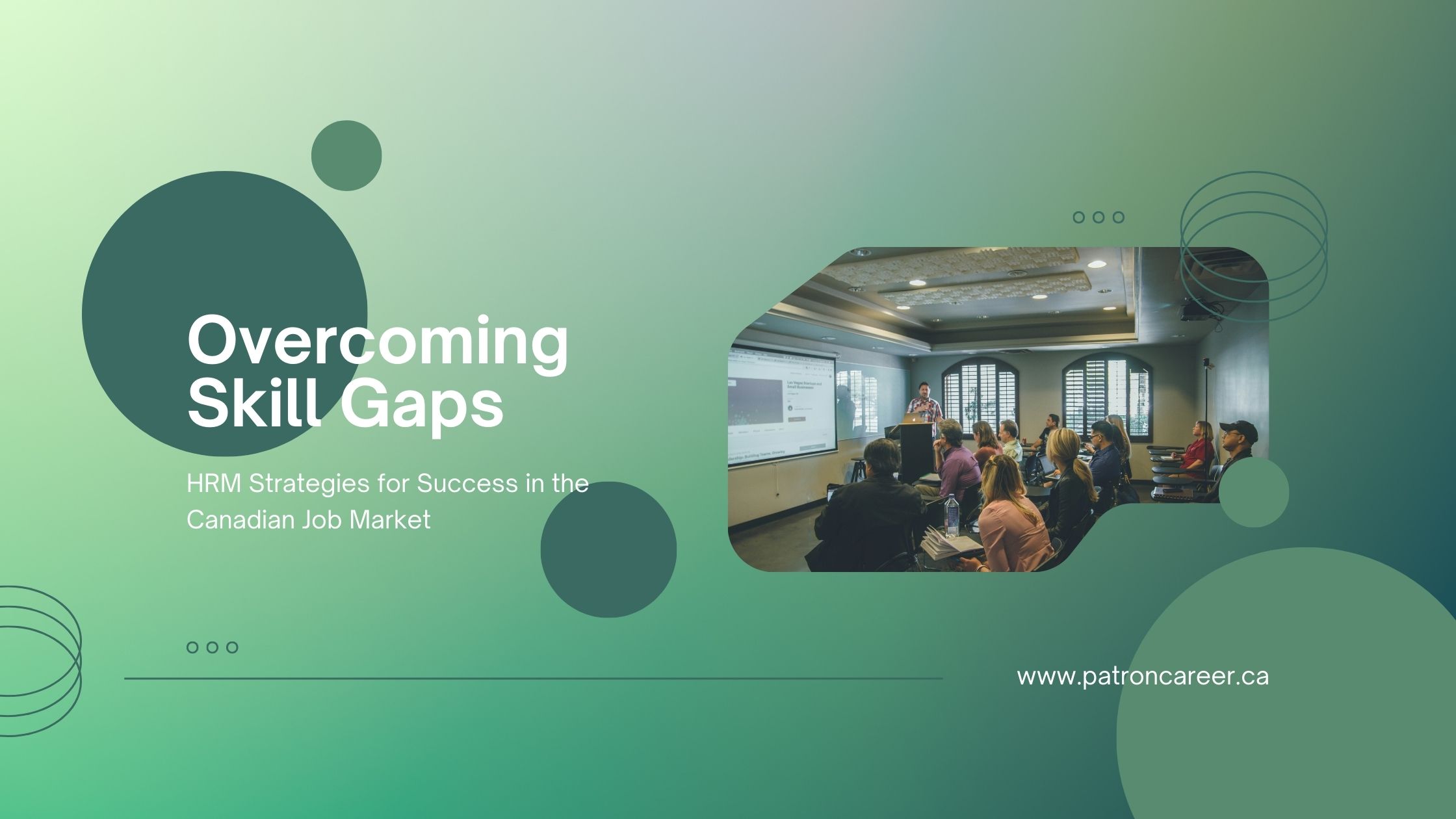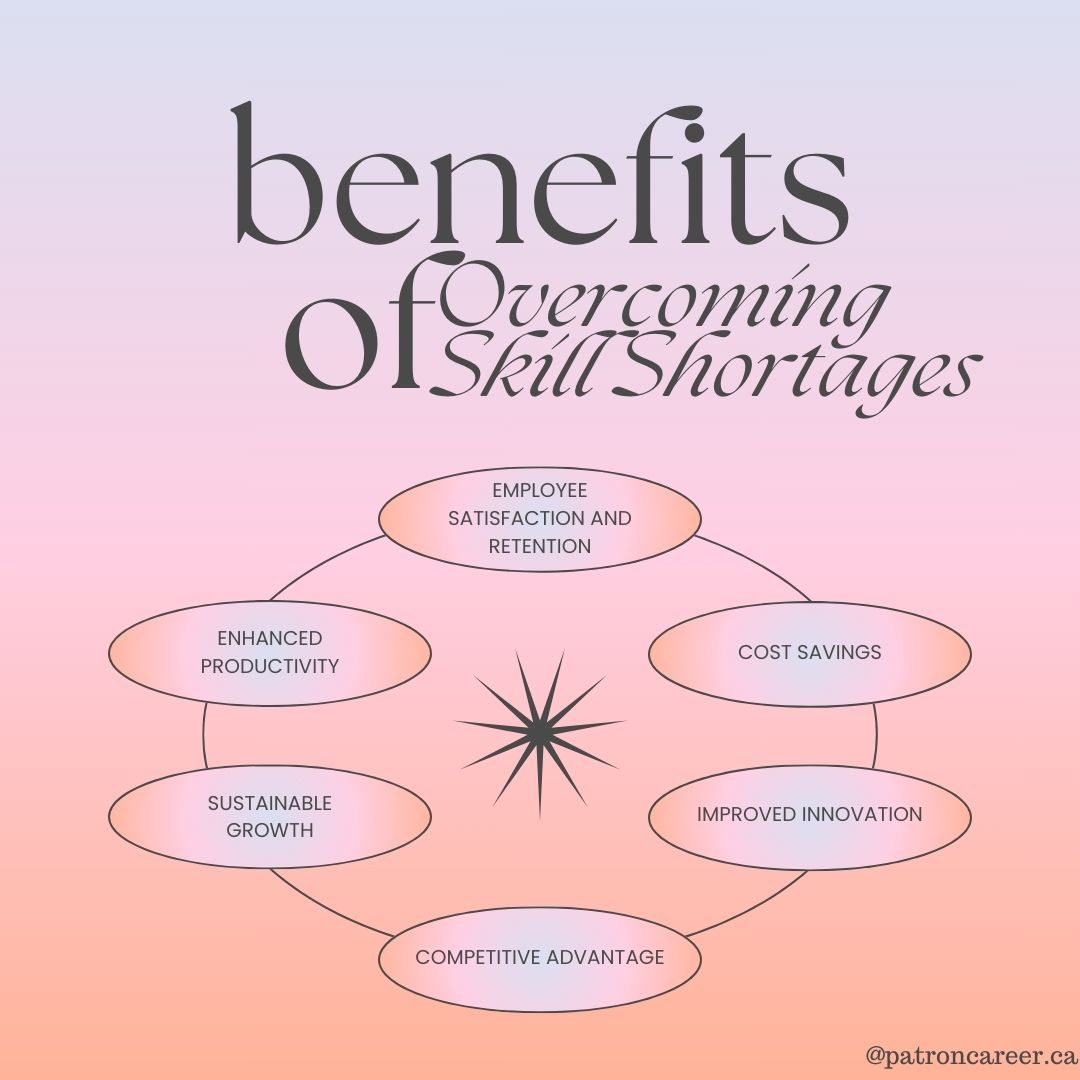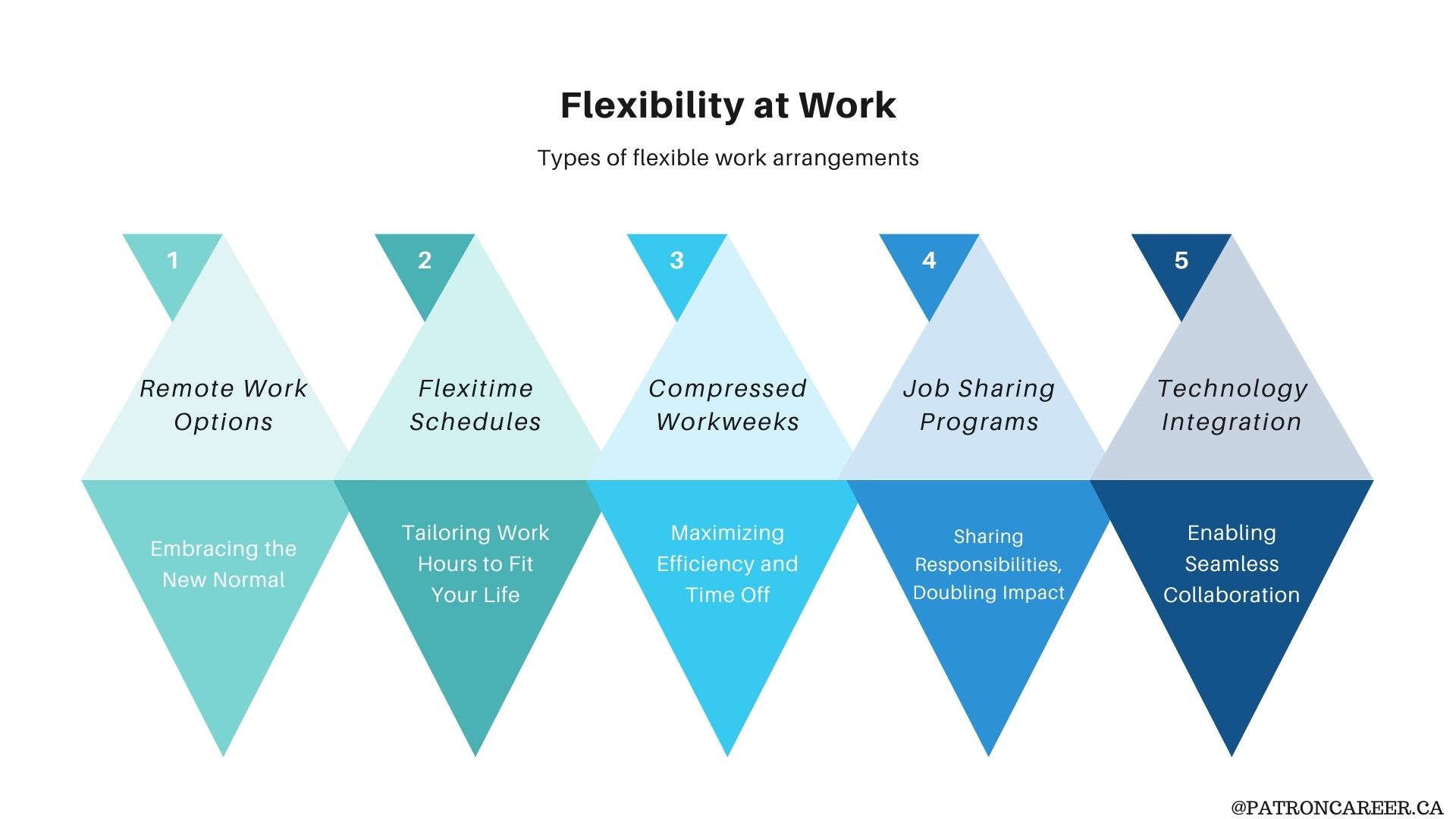
Workplace Healthy Wellness
9 February, 2024
Patron Career Staffing firmly believes in adopting a tailored approach to meet temporary and permanent recruitment needs. We safeguard the interest of our clients by finding such workers who are knowledgeable and reliable.
About UsNeed help? Make a Call
32 Dundas Street East Unit A, L5A1W2

Companies worldwide struggle due to talent shortages. Hence the quest for qualified talent stands as a persistent challenge. The Canadian job market also suffers from the complexities of this 21 st - century environment. PCS knows this struggle that skill gaps are worsening. Navigating through skill shortages requires a nuanced understanding of the intricacies involved. As businesses strive to remain competitive and innovative, the role of Human Resource Management (HRM) becomes increasingly pivotal in devising strategies to bridge the gap between talent demand and supply.
In this comprehensive blog exploration, we delve into the multifaceted phenomenon of skill shortages, evaluate their consequences, and elucidate effective HRM strategies to tackle this pressing issue. We’ll explore why skill shortages happen, what problems they cause, and how HR managers can fix them. Let's dive in and find solutions to Canada's talent puzzle together.
What is Skill Shortage?
Skill shortage refers to the disparity between the skills demanded by employers and the skills possessed by the available workforce. In simpler terms, it's when there are not enough qualified individuals to fill job vacancies. This shortage can arise due to various factors such as rapid technological advancements, changing job requirements, demographic shifts, and inadequate training and education programs.
Understanding Skill Shortages:
Skill shortages represent an alarming discrepancy between the skills sought after and demanded by employers and those possessed by the available workforce. This gap manifests across various industries and professions, stemming from numerous factors. Simply, it occurs when the team or workforce is not adequately qualified to fill the job vacancies. Finding the right fit for the right job is tough. Technological advancements, demographic shifts, globalization, and inadequate training infrastructure are among the primary contributors to this difficulty. As the demands of the job market evolve, the urgency to address skill shortages becomes increasingly pronounced.
Evaluating the Consequences of Skills Shortage:
The consequences of skill shortages extend beyond individual businesses, casting a shadow over the broader economy of Canada too. Here, we discuss some of the prominent consequences:
Diminished Productivity: When organizations lack skilled workers, productivity levels suffer as tasks take longer to complete or are not executed to the desired standard. This inefficiency can impede growth and wear down profit-earning capacity over time.
Ever-increasing Costs: Employers may be forced to invest heavily in recruitment efforts, training programs, and higher wages to attract and retain qualified talent, thereby increasing operational costs.
Stifled Innovation: The absence of skilled personnel impedes innovation, limiting a company's capacity to adapt to emerging technological advancements and market trends. In a rapidly evolving Canadian landscape, innovation serves as a linchpin for sustainable growth and competitiveness.
Missed Opportunities: Unfilled job vacancies lead to missed opportunities for expansion, collaboration, and market penetration. Delayed projects, understaffed teams, and compromised service quality can dissatisfy customer trust and impede long-term viability.

How to Get it Right: Strategies for Addressing Skill Gaps
To effectively tackle skill shortages, HRM professionals and staffing agencies must embrace a proactive, tailored and holistic approach. Here are some key strategies to consider:
Talent Pipeline Cultivation: Forge strategic partnerships with educational institutions, industry associations, and community organizations to cultivate a robust talent pipeline . By engaging with stakeholders early on, businesses can shape programs, sponsor internships, and nurture a steady influx of skilled candidates.
Upskilling and Reskilling Initiatives: Invest in training and development programs to upskill existing employees and reskill individuals from other industries to meet current and future job requirements. By fostering a culture of continuous learning, organizations can future-proof their workforce and enhance employee retention.
Embrace Flexibility: Embrace flexible work arrangements such as remote work, compressed workweeks, and job sharing to attract a diverse pool of talent and accommodate the needs of employees with varying skill sets. Flexible arrangements not only enhance employee satisfaction but also widen the talent pool by attracting candidates who prioritize work-life balance.

Read our All-In-One Handbook for Remote Employees, Here!
Diversity and Inclusion Imperative: Prioritize diversity and inclusion in recruitment efforts to tap into underrepresented talent pools and harness the power of diverse perspectives. By fostering an inclusive workplace culture, organizations can unleash creativity, drive innovation, and bolster their competitive advantage.
Employee Engagement and Retention: Implement employee retention strategies such as competitive compensation packages, career advancement opportunities, and positive work culture to retain top talent and reduce turnover. By nurturing a supportive work environment, organizations can foster loyalty, mitigate turnover, and cultivate a culture of excellence.
Related: Boosting Employee Morale and Engagement through Effective Incentives
Lastly…
Leveraging talent shortage can be an ordeal for businesses in Canada, but with the right HRM tools and strategies in place, this concern can be addressed. PCS is here to help you to bridge the gap between available talent and your company's needs. Let's find solutions to Canada’s talent puzzle together.
Did you find this article helpful? Explore other blog posts on PCS.
